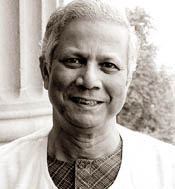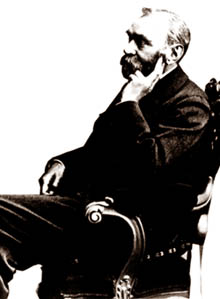|
observer |
|
|
|
|
|
OTHER LINKS |

|

|

|
|
|
|
|
The Nobel Prize is named after Alfred Nobel, who in his last will, left the bulk of his wealth to annually award prizes for those who had made a great contribution in their respective fields for the betterment of the world.
Alfred Nobel was a Swedish chemist and engineer who, after many trials and experiments, invented dynamite in 1864/65. His invention was patented in Britain in 1867 and in the USA in 1867.
After more experiments, he developed a more powerful, but less dangerous-to-handle form of dynamite, which was patented in 1876.
A patent is an internationally accepted document giving the inventor the rights over his/her invention. From this patent, Nobel earned vast wealth. He was one of the richest men at the close of the 19th century. He never married. He was a lonely man and often in poor health. He died on December 10, 1896. (He was born in 1833).
In his will, he had stated that his wealth should be put in a fund and prizes awarded for the specific subjects with the interest from that money. He had named the societies that should be in charge of the fund, and the awarding of prizes.
They were the Royal Swedish Academy of Sciences, the Swedish Academy of Literature and Royal Caroline Medico Chirugical Institute. Nobel Prizes were first awarded in 1901 and the award ceremony and banquet was held in Stockholm, the capital of Sweden, on December 10, 1901, the fifth anniversary of Alfred Nobel's death. This ceremony continues to be held on December 10.
In 1904, the Nobel Institute of Norway was established. Its principal duties are to assist the Nobel Committee to select the winner for the Peace Prize and organise the annual Nobel events in Oslo.
The Nobel Committee to select the Peace Prize is appointed by the Norwegian Storting (Parliament). So, while the awards ceremony for Chemistry, Physics, Physiology and Medicine, Literature and Economics is held in Stockholm, the awarding of the Peace Prize and banquet is held in Oslo, Norway.
For nearly 70 years, there were only five Nobel Prizes. The prize for Economics was created by the Central Bank of Sweden to mark its tricentennary. The first Nobel Prize for Economics was awarded in 1969.The Nobel Prize is awarded to one, two or three persons. Only the Peace Prize is awarded to a Society or Institution, like this year's prize which has been awarded to the Grameen Bank and to its pioneer Muhammad Yunus.
Other organisations that have been awarded the Peace Prize are the International Red Cross Committee, International Labour Organisation and Amnesty International.
Those who have won Nobel Prizes are called Nobel Laureates. Among the Nobel Peace Laureates are Mother Theresa (1979), Dalai Lama, Kofi Annan and Martin Luther King, the American civil rights leader (1964).
One of the first Nobel Laureates was Wilhelm Roentgen for his discovery of x-ray. Marie Curie is the only Laureate who has won the prize twice - in 1903 for Physics and in 1911 for Chemistry.
Rabindranath Tagore won the prize for Literature in 1913, Alexander Fleming won for his discovery of penicillin in 1945, and Sir Ronald Ross won for his work on malaria in 1902. This year's award for Literature has been won by Orhan Pamuk of Turkey.
S. S
Muhammad Yunus: Banker to the poor
Bangladeshis are celebrating the unique honour bestowed on their countryman, Muhammad Yunus. He has been awarded the Nobel Prize for Peace. It is no small honour and indeed calls for celebrations.
The Bangladesh TV network ATN Bangla showed about 500 people going in procession in Hathazari, a village in the Chittagong district, where Muhammad Yunus started his pilot project giving small loans to poor people. Up- to then, these people couldn't even dream of getting a loan from a bank or any financial institution.

In Singair, in another district, 30,000 went in procession through the town, beating drums and chanting "Light the lamp of Yunus in every home". Said one woman, "I don't know what this prize is, but I am very happy because he has helped poor women like me become small business women."
Like this woman, most men and women don't know a thing about this prize Yunus has been awarded, but they are happy that their benefactor has been awarded a prize that everyone is talking about. Back in the 1970s, Muhammad Yunus was Professor of Rural Economics at the Chittagong University.
The poverty around him made him very sad, and he was angry because banks were lending money only to those who already had money, more than they needed. Yunus had a vision. He would start a bank to lend money to the poorest people. Banks gave loans only to those who could offer a collateral like land, investment, etc., as guarantee that the loan will be paid back. Yunus' bank will give loans without a collateral.
From this vision was born the Grameen Bank
In 1976, he started a pilot project in Hathazari, giving tiny loans, mostly to women. Yunus knew from experience, that women managed the family finances better than the men.
A woman aged only 20 years borrowed 3,000 Taka (42 dollars, equal to Rs. 4,400 in our money today). She bought a cow and started selling milk. She repaid the loan, so she was able to get another loan. With that, she bought a cart and got yet another loan to buy a mobile phone.
Now, she is one of hundreds of 'Village phone ladies' earning an income by letting villagers use the phone and charging by the minute. She also runs a rice business with her once jobless husband. Twelve years after she took her first loan, she borrowed 96,000 taka (1311 dollars) to buy a shop in the market.
Since 1976, when the pilot project was started, Grameen Bank has given small loans to more than 6.6 million people. Ninety seven of these were women and 100 per cent of them have repaid their loans. This is something corporate banks cannot boast about.
Yunus and his Grameen Bank have proved that by giving loans to the poorest in a society, the cycle of poverty created by money-lenders and middle-men can be broken.
When wealth is not distributed evenly in a society, there is always unrest and clashes between the 'haves' and 'have nots'.
Peace will never come so long as people do not have the wherewithal to meet their basic needs. Yunus and the Grameen Bank, joint recipients of the Nobel Peace Prize this year, have, by giving people the tools to earn a living, and live comfortably and in dignity, contributed to peace and prosperity in Bangladesh. Hence, the Nobel Peace Prize is a fitting tribute.










